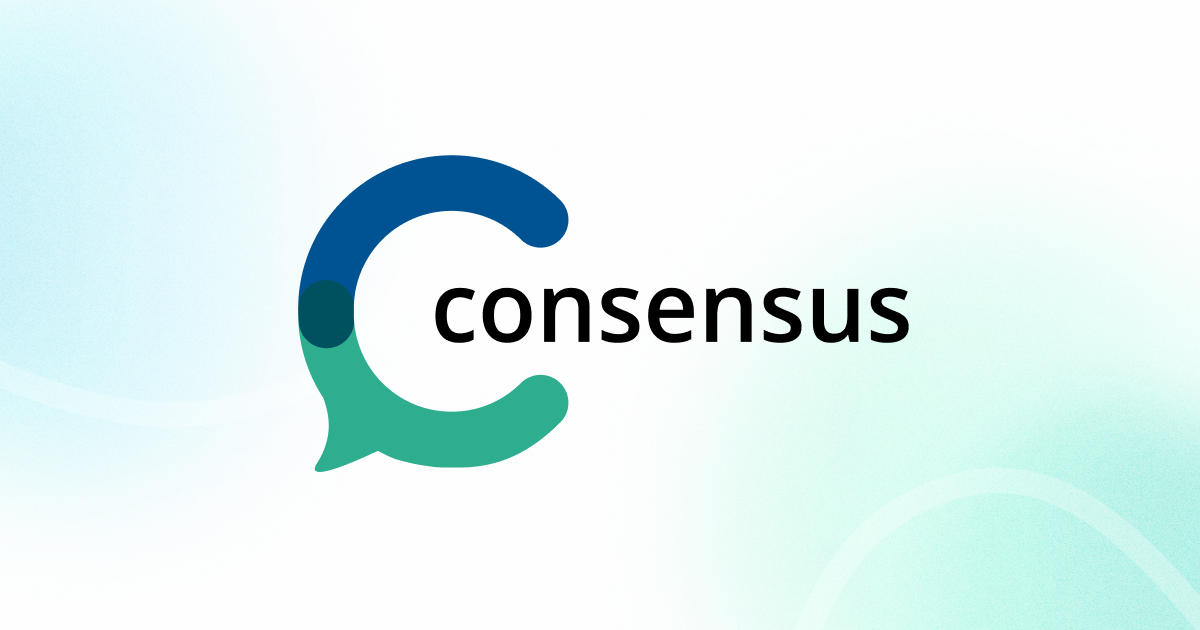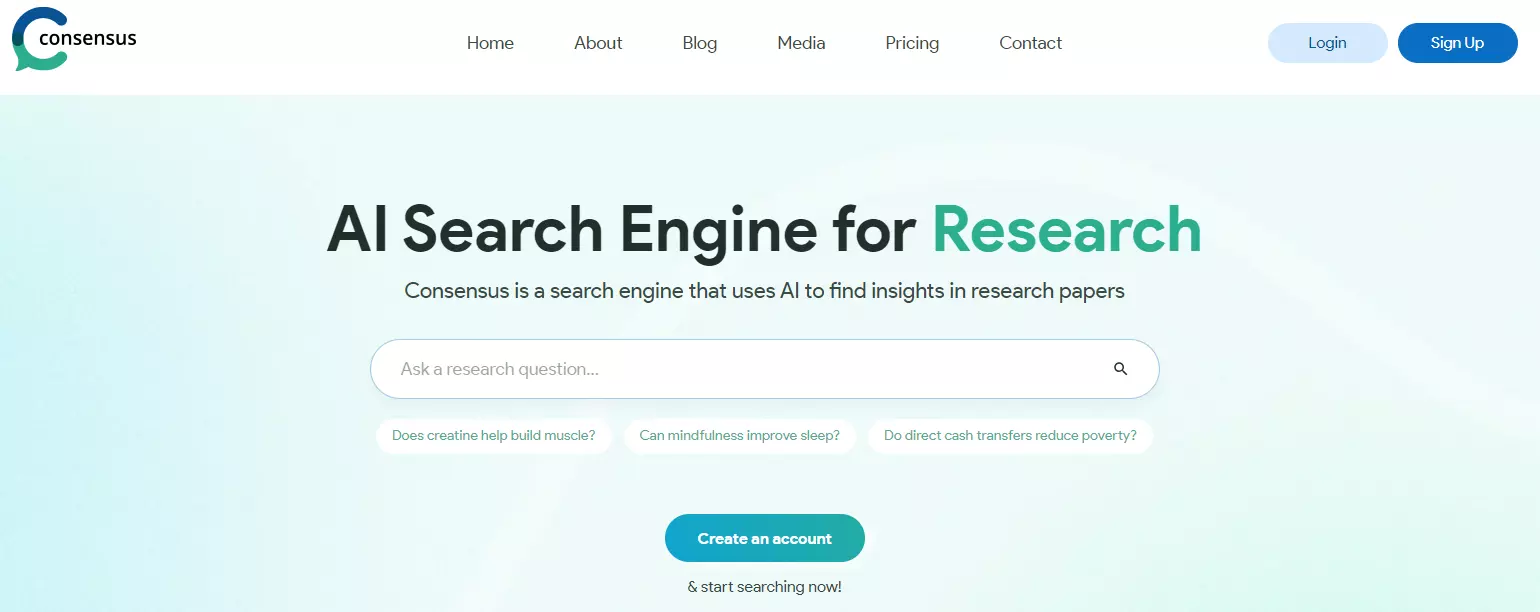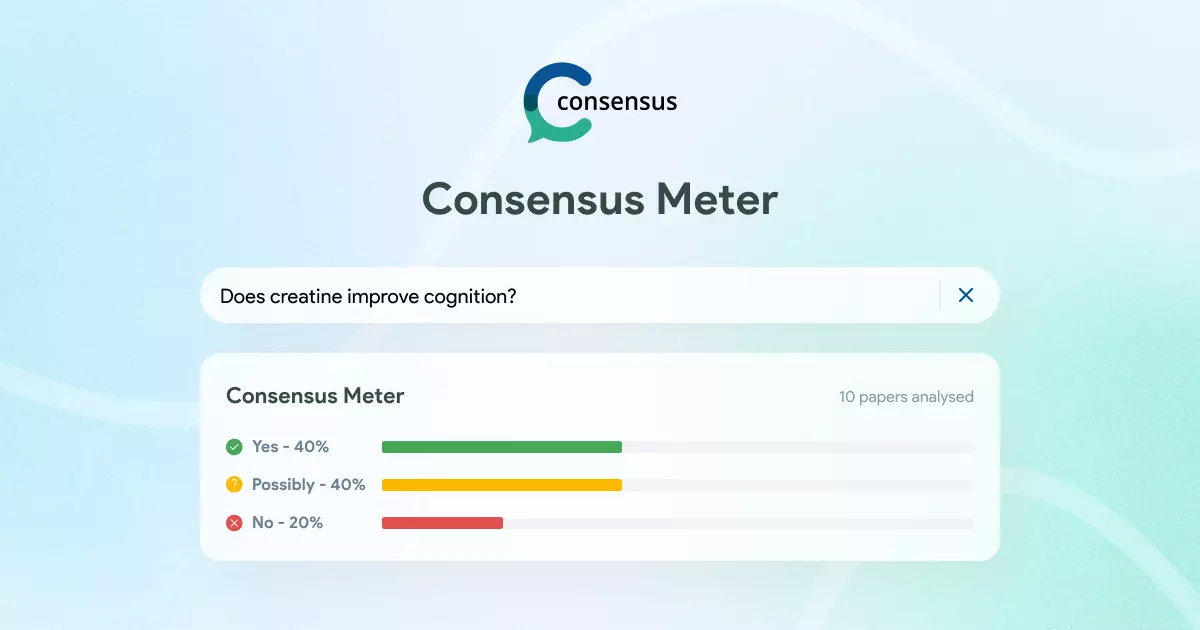
Consensus AI is an online tool that revolutionizes the way groups make decisions. This online platform offers a structured and inclusive environment for collaborative decision-making, regardless of group size or organizational scale.
In this review, we delve into the features and capabilities of Consensus, examining its advantages and possible limitations. Let's begin our exploration!
What is Consensus AI?

For students, Consensus is an invaluable companion. Simply posing a question triggers a wealth of evidence-backed responses, effectively replacing extensive research endeavors with succinct summaries of pertinent data.
Leveraging a fusion of cutting-edge technologies such as natural language processing, machine learning, and blockchain, Consensus meticulously analyzes information, assesses source credibility, and distills key findings into clear, comprehensible summaries. Operating independently of any advertising influence, it guarantees unbiased and precise outcomes.
Consensus streamlines the academic research journey for students, offering a shortcut to grasping intricate studies. Its ad-free and impartial format empowers students to independently scrutinize data.
Priding itself on scientifically verified outcomes, Consensus taps into a repository boasting over 400 million scholarly articles sourced from top-tier global journals and authors. Engineered to save time without compromising on reliability, Consensus stands as a swift, trustworthy resource for students.
Key Features of Consensus
Each aspect of Consensus is meticulously crafted to streamline and enhance the academic research experience.
AI-Driven Academic Exploration
Customization lies at the heart of Consensus' AI-powered academic search, empowering users to refine their search parameters and sift through results based on specific criteria.
GPT-4 Summary
The GPT-4 summarization tool furnishes users with concise snapshots of the top 5-10 search results for any query. Leveraging reputable journal articles, this feature delivers trustworthy and insightful information.
Consensus Meter

The Consensus Meter serves as a resource for binary inquiries, collecting and presenting responses in clear categories of "yes," "no," or "possibly."
Accessibility
For students, Consensus is a cost-free resource. By creating an account, users can pose questions and begin reaping the benefits of this robust academic research tool.
Furthermore, users have the option to subscribe to Consensus' blog, share discoveries, and contribute suggestions for future content.
Consensus Pros & Cons
Here are the main pros and cons of Consensus AI.
Consensus Pros
1. Expedited Access to Evidence-Based Answers: Consensus facilitates the discovery of evidence-based answers in a quicker and more efficient manner compared to traditional search engines.
2. Reliance on Peer-Reviewed Sources: By exclusively searching through peer-reviewed and published materials, Consensus ensures the reliability and quality of the information retrieved.
3. Utilization of Natural Language Processing: Consensus employs natural language processing technology to analyze papers and extract essential findings, thereby saving users time and effort in deciphering complex academic texts.
4. Ad-Free Environment: With Consensus being entirely devoid of advertisements, users can trust that their search results are free from biased or misleading influences.
Consensus Cons
1. Limited Coverage of Topics: Consensus may not encompass all topics or queries of interest, as its effectiveness relies on the availability of relevant research papers.
2. Insufficient Detail for Complex or Controversial Topics: Some complex or controversial subjects may lack the depth of detail or context required, as Consensus primarily focuses on summarizing the main conclusions of papers.
3. Lag in Reflecting Latest Research: Due to the time required for papers to undergo publication and indexing, Consensus may not always reflect the most recent or updated research findings.
4. Lack of Assessment of Paper Quality: Consensus does not conduct critical appraisals or meta-analyses of individual papers, potentially overlooking factors such as the quality or reliability of the sources.
Conclusion on Consensus AI
Consensus is an innovative and user-centric platform, offering a fresh approach to searching and accessing scientific research papers.
Although users should acknowledge its constraints, the website offers a swift and uncomplicated method to obtain crucial information from scientific research papers, rendering it an invaluable asset for researchers, students, and the wider public.
Moreover, through active utilization of the website's features and fostering collaboration within the community, users can fully harness the potential of Consensus as a tool for uncovering and delving into scientific research.

